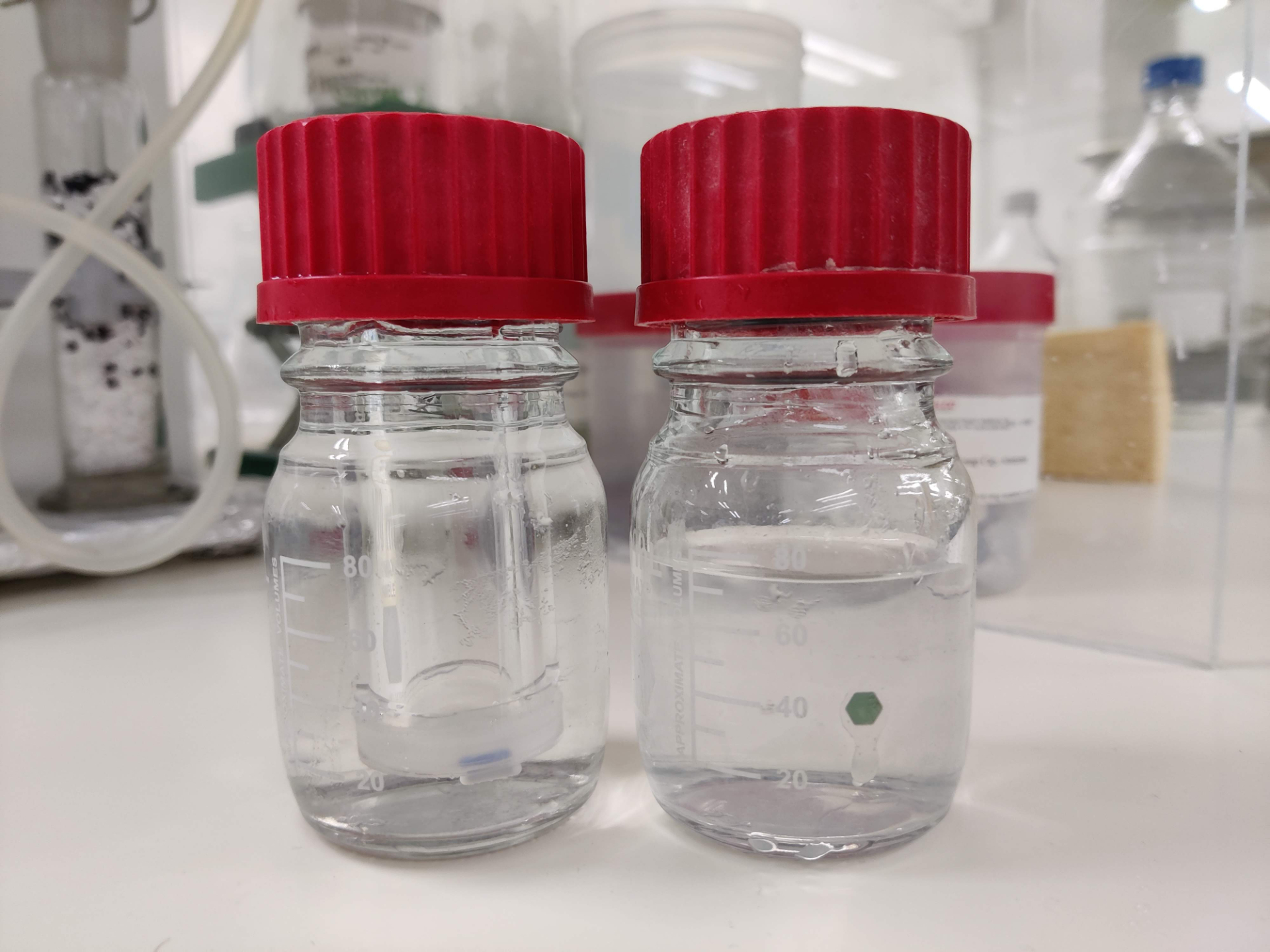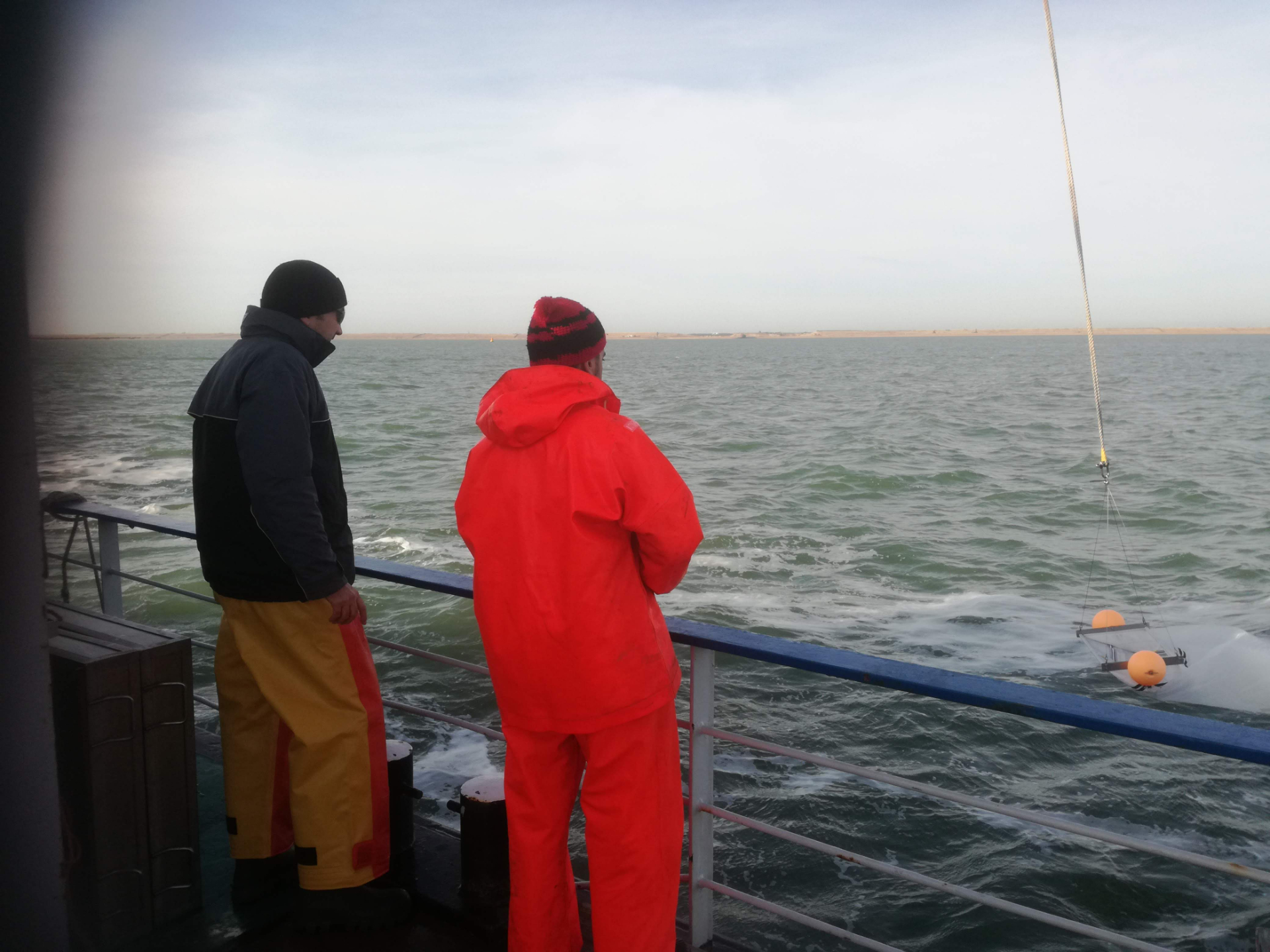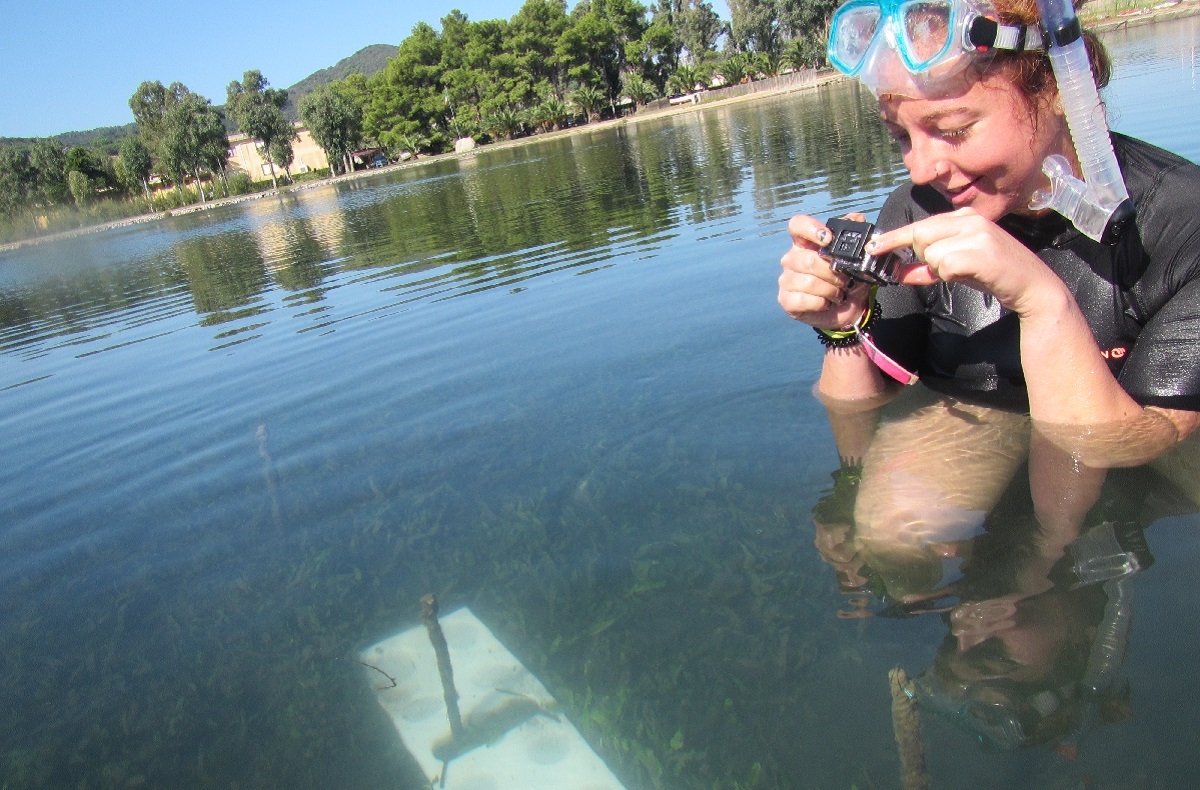Inactive user
The page you are trying to access has been deactivated because Goudriaan is not working for NIOZ anymore.
Go to Staff.

Project
Microbial plastic degradation in contrasting marine environments
Hunting for microbes that can degrade plastics
Since the 1950s, millions of tons of plastic have ended up in the oceans. However, of the amount of plastic predicted to be at sea, maximum 5% is found back floating. So what happened to the rest? We think part of it is broken down by marine bacteria, and we are looking for these bacteria. We want to find out how quickly bacteria can transform plastics into other types of particles, like CO2, and whether they can use plastic for growth. An important part of my project is working on a method to help us find these microbes and to study how quickly they break down plastics. To be able to this we want to be able to follow the particles, and therefore why we have given them a kind of flag that allows us to keep track of the particles. When bacteria “consume” the plastic, these flags can be stored in the cell were we can find them, and they will also show up in the CO2 they “breath out”. We give these “flagged” plastics to bacteria during experiments both in the lab and in the field. That way we hope to find out if bacteria are involved in the plastic gone missing and if yes, who are involved. That way we know better what happens to the plastic ending up in the ocean.
Supervisor: Dr. Helge Niemann
Others on this project: Annika Vaksmaa, Victor Hernando Morales, Rachel Ndhlovu
Marine plastic debris gone missing?
Plastic is an increasingly popular base material due to it’s versatility and low price. With an increase in production and use of plastic, the amount of marine plastic waste has also increased. Most people are familiar with the effects of larger plastic debris on marine animals and seabirds. However, microplastics and chemicals leaching from plastic objects also seem to have a negative effect in the marine environment. The extent of these negative effects is not well known, but plastic debris of all shapes and sizes is found in different marine environments worldwide, so it seems that plastic waste results in a global threat to our oceans and ocean life.
The fate of plastic ending up in the marine environment, is not yet fully constrained. An ongoing research topic is the missing plastic paradox. Based on numbers of worldwide plastic production and estimates of waste streams, less plastic is found floating at the ocean surfaces than would be expected. Therefore it seems that a lot of plastic waste has gone missing in the marine environment. There are several ideas for why this has happened, and in our lab we investigate several possible causes for this. Our main focus is on finding microbes that are capable of degrading plastics in the marine environment. However, we also investigate breakdown of plastics by UV-light.
Microbes growing on plastics
Whenever a surface, like a plastic object, enters the marine environment, microbes and animals start to grow on it and form a biofilm. The microbes together on one object can be called a microbial community and whatever grows on a plastic object is sometimes called the Plastisphere. I am interested in bacteria that grow on plastics in the marine environment. We put plastics out in the field in different environments, like different geographical locations and water column depth, and bring them back to the lab after a biofilm has developed. With 16S rRNA analysis we try to find out how the biofilms develop over time on different polymer types and how this is influenced by different environments and seasons. Do the different environments, seasons and polymers show a different community, or is there a common, overlapping community. By checking against databases, we also look for known hydrocarbon degraders on plastics.
Stable isotope tracing
The ultimate steps of biological plastic breakdown by a bacterial cell are assimilation (incorporating the plastic in the cell) and mineralization (to generate energy). During mineralization, plastic compounds react with oxygen to CO2 and H2O. By using 13C-polymers, we can track the carbon atoms into the cell and CO2. This way we can show that plastic is used for growth, and how quickly plastic gets mineralized. By using labelled plastics for field incubations, we can find out which bacteria actually use plastic for growth.
UV-light degradation
Plastics can also break down under environmental abiotic influences. While floating at the ocean surface, plastics are exposed to sunlight. The incident UV-light breaks chemical bonds in plastic. This causes the polymer to fall apart and release both dissolved and gaseous chemicals. In the lab we build an UV-chamber with high intensity to simulate this process in an accelerated way. This allows us to study which chemicals are produced during this process and at what rate, by identifying both gaseous and dissolved compounds and measuring there concentrations. For this we use both gas chromatography and liquid chromatography.
Fieldwork Locations
St. Eustatius
Elba
Waddenzee

Research interests
• Microbial communities
• Aquatic microbial ecology
• Microbial physiology
• Biofilms
• Culturing techniques
• Molecular biology
• Nitrogen cycling
Previous experience
4/2017 – 01/2018: Project Technician Fermentations, Industrial Microbiology Group, Delft University of Technology, Delft, Netherlands
- 2016: Research Intern, team Proteins & Biomaterials, AgResearch, Lincoln, New Zealand
Education
MSc Life Science and Technology, Delft University of Technology
Track: Biochemical Process Engineering. (09/2014 – 12/2016)
Thesis: Influence of biomass stratification and temperature effects on oxygen competition in a nitrifying.
BSc Life Science and Technology, Leiden University/Delft University of Technology (09/2008 – 06/2012)
Thesis: Overexpression of codon pair optimized acetylating acetaldehyde dehydrogenase in S. cerevisiae.
ERASMUS exchange, Uppsala University, Autumn 2011.
Publications
Ioannis Papapetridis, Maaike Goudriaan, María Vázquez Vitali, Nikita A. de Keijzer, Marcel van den Broek, Antonius J. A. van Maris and Jack T. Pronk (2018) Optimizing anaerobic growth rate and fermentation kinetics in Saccharomyces cerevisiae strains expressing Calvin-cycle enzymes for improved ethanol yield
Ioannis Papapetridis, Maarten D. Verhoeven, Sanne J. Wiersma, Maaike Goudriaan, Antonius J.A. van Maris and Jack T. Pronk (2018) Laboratory evolution for forced glucose-xylose co-consumption enables identification of mutations that improve mixed-sugar fermentation by xylose-fermenting Saccharomyces cerevisiae
Vaksmaa, A., Knittel, K., Abdala Asbun, A., Goudriaan, M., Ellrott, A., Witte, H. J., Vollmer, I., Meirer, F., Lott, C., Weber, M., Engelmann, J. C., & Niemann, H. (2021). Microbial Communities on Plastic Polymers in the Mediterranean Sea. Frontiers in Microbiology, 12. https://doi.org/10.3389/fmicb.2021.673553
Goudriaan, M., Morales, V. H., van der Meer, M. T., Mets, A., Ndhlovu, R. T., van Heerwaarden, J., Simon, S., Heuer, V. B., Hinrichs, K., & Niemann, H. (2023). A stable isotope assay with 13C-labeled polyethylene to investigate plastic mineralization mediated by Rhodococcus ruber. Marine Pollution Bulletin, 186, 114369. https://doi.org/10.1016/j.marpolbul.2022.114369
Delre, A., Goudriaan, M., Morales, V. H., Vaksmaa, A., Ndhlovu, R. T., Baas, M., Keijzer, E., de Groot, T., Zeghal, E., Egger, M., Röckmann, T., & Niemann, H. (2023). Plastic photodegradation under simulated marine conditions. Marine Pollution Bulletin, 187, 114544. https://doi.org/10.1016/j.marpolbul.2022.114544